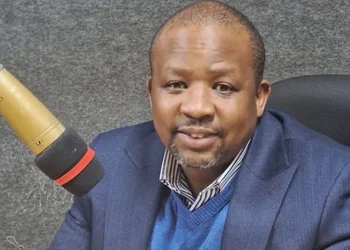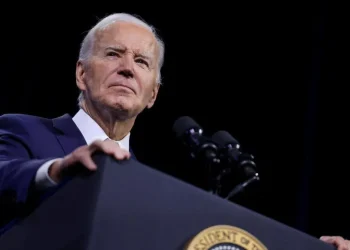The National Health Insurance Authority (NHIA) has achieved a significant milestone, with a total registered membership of 17.2 million, encompassing 55 percent of Ghana’s population.
The Chairman of the NHIA’s board, Dr. Ernest P.K. Kwarko made this revelation during the inaugural regional conference on financing Universal Health Care (UHC) and health security in Accra on the theme “Overcoming financial barriers and providing financial risk protection.”
The two-day conference serves multiple purposes, including providing a platform for sharing valuable insights gained from experiences, disseminating best practices, enhancing capacity and institutional development, and exchanging innovative ideas. Its ultimate goal is to promote sustainable health financing in Africa.
Dr. Kwarko noted that, with government support, there has been significant improvement in claims payment adding that 90 percent of all claims are now managed electronically and was hopeful that his outfit would fully go electronic by the close of the year.
He emphasized that this shift to electronic management would enhance efficiency in claims processing and reduce the time required for the process.
Dr. Kwarko also pointed out the crucial role played by the private sector in facilitating innovative access to healthcare funding in the country following successful collaborations between diagnostic and pharmaceutical companies, which have worked together to establish loan schemes for cancer care.
Dr. Kwarko emphasized that the National Health Insurance Scheme primarily obtains funding through dedicated tax revenues and contributions from the formal sector, such as those from the Social Security and National Insurance Trust (SSNIT).
Dr. Kwarko expressed his appreciation for the substantial support provided by the NHIA’s development partners, recognizing their significant contributions to the success of the NHIS over the past two decades.
He mentioned that at present, the Scheme disburses an average monthly claim of US$15.1 million on behalf of its members.
The Minister of Health, Mr. Kwaku Agyeman-Manu, who inaugurated the conference, highlighted that the implementation of the NHIS has played a transformative role in reshaping Ghana’s healthcare financing framework throughout the years.
He noted that the NHIS has made a substantial contribution to enhancing the quality of life for its members and pointed out that maternal and child health indicators have shown notable improvements, and disparities caused by limited access to healthcare services have been reduced.
“The time is now more than ever for we in the continent to find suitable solutions to ensuring that our populations are protected from catastrophic expenditures.We need reforms to improve the health security of the region, contribute significantly and impact positively towards preparedness and response to public health emergencies,” he added.
In a speech read on her behalf, Dr. Matsidiso Moeti, the African Regional Director of the World Health Organization (WHO), noted that the WHO African region has experienced progress in reducing the proportion of the population facing extreme poverty caused by out-of-pocket spending on healthcare.
She said “the level of financing for health remains inadequate com¬pared to the resource requirement. The current health expenditure across all the WHO Africa region member states averaged US$117 per person in 2020 with general government health expenditure averaging US$60 per capita.”
“In 2020, government spending on health was less than US$90 per person in 39 countries in the African Region and less than 20 dollars per person in 25 countries, compared to the recommended US$90 per person for low income countries and US$117 per person for lower middle income countries.
















